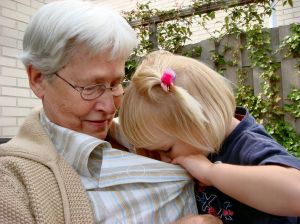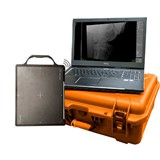Dr Saleh Ihmaid, Dr Jasim Al-Rawi, Dr Christopher Bradley and Dr Michael Angove from the School of Pharmacy and Applied Sciences are testing compounds that may one day be used to improve conventional chemotherapy and radiation treatments by reducing the immunity of cancer cells to such treatments.
"Radiation treatments work by causing breaks in the DNA of tumour cells but tumours cells have ways of repairing the damage caused by conventional treatments. Consequently, very high dosages of radiation therapy and chemotherapy are required, which increases the potential for damage to non-cancerous body tissue," Dr Bradley said.
"We are testing 60 compounds that carry an enzyme known as DNA-PK. This enzyme has previously been identified as key to inhibiting a tumour cell's ability to repair its DNA.
"Our research is intended to identify the compound that maximises a tumour cell's sensitivity while exposing patients to the least amount of radiation possible."
The team is compiling its data in laboratories at La Trobe University Bendigo. Samples are grown in the lab and are also collected at the Peter MacCallum Cancer Centre at the Bendigo Radiotherapy Centre.
The researchers, in association with Dr Murray Robertson, a molecular modelling specialist at Strathclyde University, Glasgow, recently published a series of papers in the European Journal of Chemistry announcing the results of tests of a brace of compounds.
"The four papers have shown that, partially at least, some of the compounds we have tested do increase a cancer cell's sensitivity and causes them to die with much less radiation," Dr Bradley said.
"While this research is still many years away from clinical trials with patients, the success of our ongoing tests as well as those by other independent research groups worldwide, are a positive step forward."






















